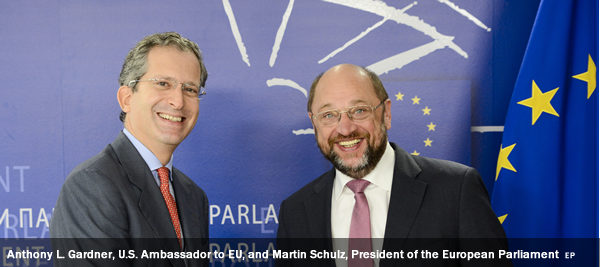EU-US negotiations on the TTIP free trade agreement are continuing. The deal which is expected to create new jobs and boost economies on both sides of the Atlantic touches upon sensitive issues, not least rules for the investor-state dispute settlement (ISDS). On 27 January the international trade and legal affairs committees held a joint public hearing to shed light on the issues at play.
The hearing was chaired by MEPs Pavel Svoboda (EPP, Czech Republic) and Bernd Lange (S&D, Germany), chairs of the legal affairs and international trade committees.
The investor-to-state dispute settlement is a mechanism by which investors can seek to enforce the fulfilment of certain international obligations by governments (for example in cases of discrimination, expropriation without compensation or unfair treatment.)
These rules provide minimum standards. As the biggest investor in the world and the main user of this mechanism it is important for the EU that the system works well, according to the European Commission.
Experts speaking at the hearing agreed that while ISDS can be an efficient way of resolving disputes, improvements are needed, including a need for more transparency, clearer rules on mediation procedures and access to ISDS.
TTIP aims to remove customs duties as well as non-customs obstacles to trade, such as technical burdens. The mutual recognition of certain equivalent rules is also intended. The Commission assures, however, that this does not equate to harmonisation or the lowering of EU standards.
For instance, due to different safety rules in the US and the EU, cars may have different types of lights or safety belts depending on the target market.
If these safety rules were considered equivalent, since they do not impact general EU or US car safety standards, changes in production would not be necessary, explained Erik Jonnaert, secretary-general of the European Automobile Manufacturers Association.
The next round of TTIP negotiations takes place in Brussels on 2-6 February. Once the TTIP agreement is concluded, it will have to be approved by the European Parliament before entering into force.
The Parliament is currently preparing a mid-term review of the TTIP talks and the report could be voted on in May.
